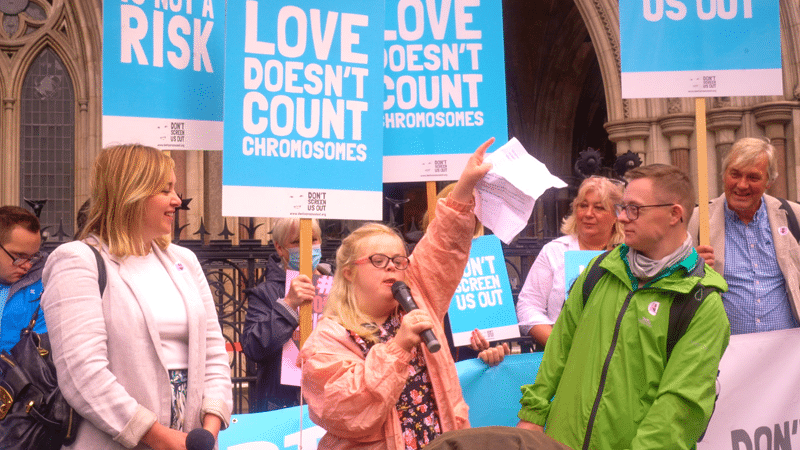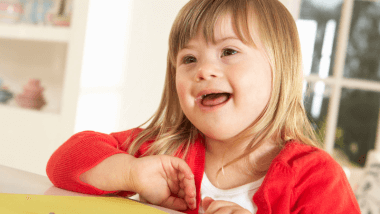Down’s syndrome campaigner Heidi Crowter has vowed to take her fight against disability-selective abortions to the Supreme Court.
Last week, the Court of Appeal dismissed Heidi’s case — brought with fellow campaigner Máire Lea-Wilson — stating that the Abortion Act 1967 “does not interfere with the rights of the living disabled”.
Under current legislation, abortion is permitted up to 24 weeks for most reasons but is available up to birth for children deemed to have a disability – including Down’s syndrome.
Ruling
In 2020, Heidi and Máire were given permission to challenge the law that allows babies with Down’s syndrome to be aborted up to birth.
The High Court rejected the case in September last year, saying it was a matter for Parliament. But the right to appeal was granted in March.
At appeal, the campaigners argued that to permit the abortion of a child with Down’s syndrome, or other “serious handicaps”, particularly after 24 weeks, is contrary to the European Convention on Human Rights.
While the court recognised people with Down’s syndrome may see the law “as implying that their own lives are of lesser value”, it deemed such a perception did not by itself “give rise to an interference” with their human rights.
Changing minds
Speaking outside court, Heidi said: “I am very upset that babies with Down’s syndrome can be aborted up to birth.
“This tells me that I am not valued and of much less value than a person without Down’s syndrome.”
She also said: “I will keep on fighting because we have already informed and changed hearts and minds and changed people’s opinions about the law”.
Máire Lea-Wilson — whose son Aidan was born with Down’s syndrome — said she would “look to appeal this judgement, because equality should be for everyone regardless of the number of chromosomes they have”.
Stigma
Paul Conrathe, the lawyer representing the women, responded: “This judgement is disappointing and perplexing. Rather than affirming the equal value of those with disabilities, it further adds to the stigmatisation they suffer.”
“By failing to give legal recognition to the suffering and stigmatisation that people with disabilities feel about a law which singles them out for termination in the womb the Court has further diminished a fragile voice for equal value. Yet again their perceptions are disregarded.
“My clients are resolute in their fight for the legal recognition of the equal value of people with disabilities and will appeal to the Supreme Court to see this anachronistic and outdated legislation changed.”
Heidi Crowter reflects on her battle to end disability discrimination in the womb
Campaigners fear screening could ‘eliminate’ Down’s syndrome
Mum shocked by friends’ judgemental Down’s syndrome comments


